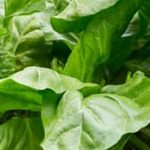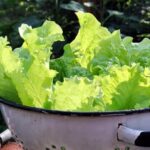When it comes to cultivating a thriving vegetable garden, the quality of the soil is of utmost importance. One key aspect of maintaining healthy soil is through the use of soil amendments, such as compost and manure. These natural materials can provide essential nutrients and improve the overall structure of the soil, creating an optimal environment for plant growth. But which is better for vegetable gardens: compost or manure?
The debate over whether compost or manure is more beneficial for vegetable gardens has been ongoing among gardening enthusiasts. Both have their own set of advantages and considerations, making it important to understand the specific benefits and uses of each.
In this article, we will explore the advantages of using compost and manure in vegetable gardens, compare their nutrient content, examine differences in soil texture and structure, as well as provide insights on how to properly incorporate them into your garden.
By gaining a deeper understanding of these natural soil amendments, you will be better equipped to make informed decisions about which option will best suit your specific gardening needs. Whether you are an experienced gardener or just starting out, knowing the ins and outs of using compost and manure in your vegetable garden can ultimately lead to healthier plants and a more bountiful harvest.
The Benefits of Using Compost in Vegetable Gardens
Compost is a valuable soil amendment for vegetable gardens, providing numerous benefits for plant growth and overall soil health. Here are some reasons why compost is an excellent choice for your vegetable garden:
- Improves soil structure: Compost helps to improve the texture and structure of the soil, making it more conducive for root development and water retention.
- Enhances nutrient content: Compost is rich in essential nutrients such as nitrogen, phosphorus, and potassium, which are vital for the healthy growth of vegetables.
- Promotes beneficial microorganisms: The organic matter in compost encourages the growth of beneficial bacteria and fungi in the soil, which contribute to the breakdown of organic materials and nutrient availability for plants.
It’s important to note that while compost is highly beneficial for vegetable gardens, it should be properly incorporated into the soil to maximize its effects. When applying compost to your garden, ensure that it is well-rotted and matured to avoid any potential issues with pathogens or weed seeds.
In addition to its nutrient-rich properties, compost also aids in moisture retention and reduces the need for frequent watering. With these benefits in mind, it’s clear that compost is an excellent choice for promoting healthy and productive vegetable gardens.
The Benefits of Using Manure in Vegetable Gardens
Manure has been used for centuries as a natural fertilizer, and for good reason. The benefits of using manure in vegetable gardens are numerous. One of the main advantages is that it provides a good source of organic matter, which helps improve soil structure, moisture retention, and aeration. The organic matter in manure also helps promote healthy root growth and encourages beneficial microbial activity in the soil.
In addition to being an excellent source of organic matter, manure is also rich in essential nutrients such as nitrogen, phosphorus, and potassium. These nutrients are vital for the healthy growth and development of vegetables. Using manure as a soil amendment not only provides these nutrients to the plants but also helps improve the overall fertility of the soil over time.
Another benefit of using manure in vegetable gardens is its ability to suppress certain plant diseases and pests. Studies have shown that adding manure to the soil can help reduce the incidence of certain soil-borne diseases and nematodes, making it a valuable tool for organic gardeners looking to manage pests naturally.
| Benefits | Usage |
|---|---|
| Good source of organic matter | Improves soil structure, moisture retention, and aeration |
| Rich in essential nutrients | Vital for healthy growth and development of vegetables |
| Suppresses plant diseases and pests | Reduces incidence of certain soil-borne diseases and nematodes |
Comparing the Nutrient Content of Compost and Manure
When it comes to choosing the right soil amendment for your vegetable garden, understanding the nutrient content of compost and manure is essential. Compost is known for its high organic matter content, which provides a slow-release of nutrients to plants.
It contains a balanced combination of nitrogen, phosphorus, and potassium, as well as other essential micronutrients that are beneficial for plant growth. On the other hand, manure is also rich in nutrients such as nitrogen, phosphorus, and potassium but may vary depending on the animal source.
One key difference between compost and manure is the availability of nutrients. While compost releases nutrients slowly over time, manure can provide an immediate flush of nutrients to plants when first applied. This can be beneficial for fast-growing vegetables that require a quick boost of nutrients during their early stages of growth. However, the nutrient release from manure can also be more prone to leaching or runoff compared to compost.
Another important consideration when comparing the nutrient content of compost and manure is the potential presence of weed seeds and pathogens. While properly managed composting processes can eliminate weed seeds and pathogens, fresh manure may contain these undesirable elements. Therefore, it’s crucial to ensure that any manure used in vegetable gardens has been properly aged or composted to reduce the risk of introducing unwanted seeds or diseases into the garden.
Understanding the Differences in Soil Texture and Structure When Using Compost vs Manure
When it comes to improving the soil in your vegetable garden, understanding the differences in soil texture and structure between compost and manure is essential. Both compost and manure are valuable soil amendments, but they have distinct characteristics that can have different effects on the soil.
Compost Soil Texture and Structure
Compost is a well-decomposed organic matter that has a crumbly texture. When added to the soil, it helps improve its structure by increasing its water retention capacity and promoting better aeration. Compost also contains beneficial microorganisms that contribute to a healthy soil ecosystem, promoting overall plant growth and health.
Manure Soil Texture and Structure
Manure, on the other hand, has a more varied texture depending on the animal source and bedding material. Typically, manure has a coarser texture than compost and may contain undecomposed organic matter. When incorporated into the soil, manure adds nutrients like nitrogen, phosphorus, and potassium, but may require additional time for decomposition before it fully benefits plants.
Understanding these differences is important when deciding which soil amendment to use in your vegetable garden. Depending on your specific needs, you may choose one over the other or even consider using both in combination for maximum benefits.
How to Properly Apply and Incorporate Compost Into a Vegetable Garden
Compost is an excellent soil amendment that can greatly benefit the health and productivity of your vegetable garden. When applied and incorporated properly, compost can improve soil structure, retain moisture, and provide essential nutrients for plant growth.
Preparing the Soil
Before applying compost to your vegetable garden, it is important to prepare the soil. Start by removing any weeds or debris from the area. Loosen the soil with a gardening fork or shovel to create a welcoming environment for the compost.
Applying Compost
Once the soil is prepared, spread a layer of compost over the planting area. Aim for a thickness of about 1-2 inches. Be sure to distribute the compost evenly across the entire surface of the garden.
Incorporating Compost
After applying the compost, it is essential to incorporate it into the soil. Use a gardening fork or a tiller to mix the compost into the top 6-8 inches of soil. This will ensure that the nutrients are distributed throughout the root zone of your vegetable plants.
By properly applying and incorporating compost into your vegetable garden, you can promote healthy plant growth and improve overall soil quality. The organic matter in compost also helps to support beneficial microorganisms and earthworms, creating a thriving ecosystem underground that ultimately benefits your plants above ground as well.
How to Properly Apply and Incorporate Manure Into a Vegetable Garden
Manure is a valuable soil amendment for vegetable gardens due to its high nutrient content. When properly applied and incorporated, manure can improve soil fertility and provide essential nutrients for healthy plant growth. However, it is important to follow certain guidelines when using manure in a vegetable garden to ensure its effectiveness and prevent any potential issues.
One of the first steps in incorporating manure into a vegetable garden is to properly age or compost the manure before applying it to the soil. Fresh manure can be too acidic and may contain harmful pathogens, so allowing it to decompose for several months will help reduce these risks. This aging process also allows the nutrients in the manure to become more readily available for plants.
Once the manure has been aged, it can be spread evenly over the garden soil. It is important to avoid applying too much manure, as this can lead to an imbalance of nutrients and potential harm to plant roots. A general guideline is to apply about 1-2 inches of composted or aged manure over the garden soil, and then incorporate it into the top few inches of soil with a shovel or tiller.
Properly incorporating manure into a vegetable garden ensures that the nutrients are distributed throughout the soil, benefiting all plants in the garden. Additionally, mixing the manure thoroughly with the soil helps prevent nitrogen loss through leaching and reduces the risk of odors commonly associated with fresh manure. By following these steps, gardeners can effectively utilize manure as a beneficial soil amendment for their vegetable gardens.
| Benefits of Manure | How to Incorporate Manrue |
|---|---|
| High nutrient content | Proper aging before application |
| Improves soil fertility | Even spreading on garden soil |
| Provides essential nutrients for healthy plant growth | Incorporation into top few inches of soil |
Considerations for Using a Combination of Both Compost and Manure in Vegetable Gardens
When it comes to choosing the right soil amendment for your vegetable garden, you may find yourself torn between using compost or manure. However, a combination of both can offer the best of both worlds, providing a well-rounded source of nutrients and improving soil structure.
Compost is known for its ability to improve soil structure and texture, increase nutrient availability, and promote beneficial microbial activity. On the other hand, manure is rich in essential nutrients such as nitrogen, phosphorus, and potassium, which are vital for plant growth. By using a combination of both compost and manure in your vegetable garden, you can benefit from the nutrient-rich properties of manure while also enhancing soil health with compost.
Another aspect to consider when using a combination of both compost and manure is the potential for balanced nutrient content in the soil. Compost provides a slow-release source of nutrients over time, while manure offers an immediate boost of essential elements. This balance can ensure that your vegetable plants receive a continuous supply of nutrients throughout their growing season.
Incorporating both compost and manure into your vegetable garden requires careful planning and proper application techniques. It’s important to consider the specific needs of your plants and adjust the ratio of compost to manure accordingly.
By using a combination of these two organic materials, you can optimize the health and productivity of your vegetable garden while promoting sustainable gardening practices. Ultimately, by weighing the benefits of both compost and manure, it becomes clear that utilizing a combination is best for achieving optimal results in your vegetable garden.
Conclusion
In conclusion, both compost and manure have their own unique benefits when it comes to enriching the soil in vegetable gardens. Compost is a great source of organic matter and provides a wide range of essential nutrients for plant growth. On the other hand, manure is rich in nitrogen, which can promote healthy leafy growth in vegetables.
When comparing the nutrient content of compost and manure, it is important to consider the specific needs of the vegetables being grown. Some plants may benefit more from the nutrient profile of compost, while others may thrive with the nitrogen boost from manure. Additionally, the differences in soil texture and structure between compost and manure should be taken into account when making a decision.
It’s also worth considering using a combination of both compost and manure in vegetable gardens. This can help achieve a balance of nutrients and improve overall soil health. Ultimately, the choice between compost or manure depends on factors such as the types of vegetables being grown, soil composition, and individual gardening goals. By understanding these considerations, gardeners can make an informed decision on choosing the right soil amendment for their vegetable garden.
Frequently Asked Questions
Which Vegetables Do Not Like Manure?
Some vegetables do not thrive when grown in soil with high levels of manure, particularly root vegetables like carrots and potatoes. Manure can cause these vegetables to fork or produce strange shapes, impacting their quality.
What Is Better Compost or Manure?
Both compost and manure have their benefits and it ultimately depends on the specific needs of your garden. Compost is great for improving soil structure and adding nutrients over the long term, while manure provides a quick source of nutrients, especially nitrogen.
When Should You Not Use Manure?
Manure should not be used on edible crops that will be harvested soon after application, as there may be a risk of contamination from pathogens such as E.coli. It’s best to avoid using fresh manure close to harvest time to ensure food safety.

If you’re looking to get into vegetable gardening, or are just looking for some tips on how to make your current garden better, then you’ve come to the right place! My name is Ethel and I have been gardening for years. In this blog, I’m going to share with you some of my best tips on how to create a successful vegetable garden.





